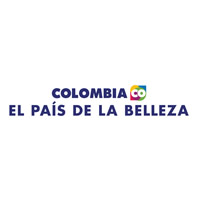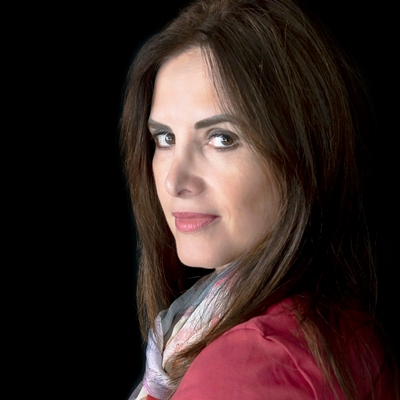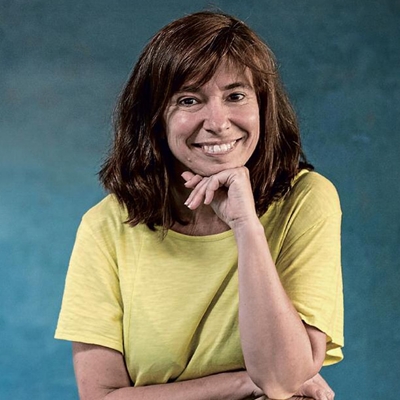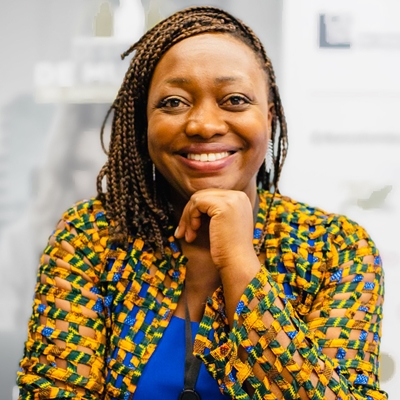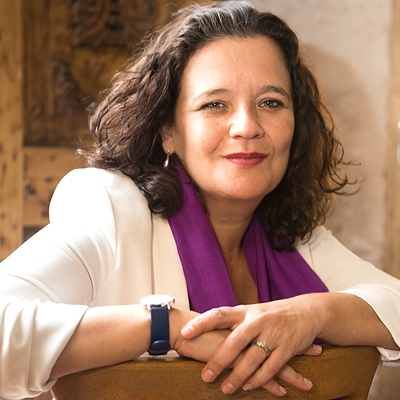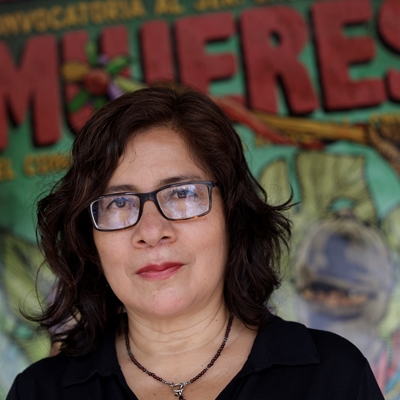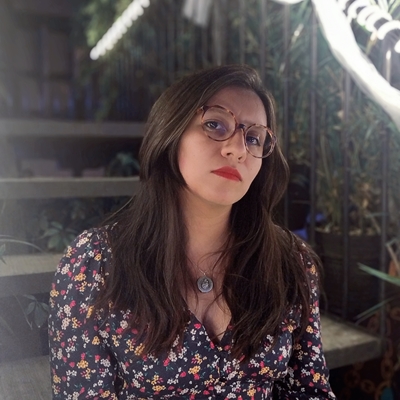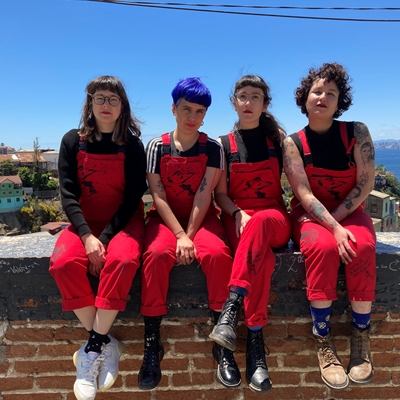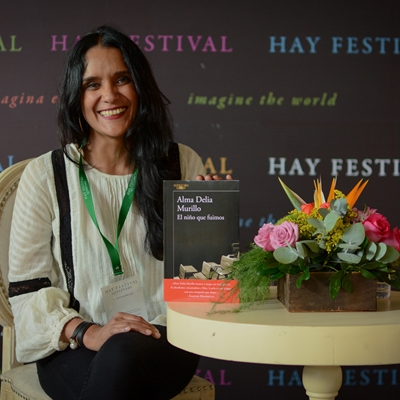Hay Festival Colombia Digital
Hay Festival Colombia took place from 21 to 30 of January 2022, with events in the cities of Cartagena de Indias, Medellín and Jericó. You are currently browsing the digital programme of the festival.
If you want to browse the in-person events of Hay Festival Cartagena de Indias, click here.
If you want to browse the in-person events of Hay Festival Medellín, click here.
If you want to browse the in-person events of Hay Festival Jericó, click here.
Event 8
Elisa Guerra, Yayo Herrero and Paula Marcela Moreno in conversation with Cristina Fuentes La Roche
Visions of the future: information, education and feminism
Museo de Arte Religioso de Jericó
An important talk on burning issues, with three proposals for the future to build a better world, by participants in the festival who, from their respective trenches and countries, raise problems and solutions needed for a world in crisis. With educator and writer Elisa Guerra (Mexico), environmental activist and feminist Yayo Herrero (Spain) and social leader and activist Paula Marcela Moreno (Colombia), in conversation with Hay Festival Director Cristina Fuentes La Roche.
With the support of Acción Cultural Española, AC/E
Event HF3
The writer and journalist Laura Castellanos and the illustrator Brenda Castro present La marcha del #TerremotoFeminista, an illustrated work of non-fiction that contextualizes feminism, from the origins of the patriarchy to the feminist movements of the 21st century. Readers follow Sofi, a teenager who joins the demonstrations that are protesting the oppression of the patriarchal system, and with whom we learn about all the victories won, and about all that still remains to be done.
From 12 years on
Buy La marcha del #TerremotoFeminista by Laura Castellanos at Librerías Gandhi
Register to watch onlineBuy the book for this event
Event 62
LASTESIS in conversation with Alma Delia Murillo
Sede Digital Hay Querétaro
The performance created and led by the LASTESIS collective of the dance and song Un violador en tu camino in Santiago de Chile can be described as one of the most iconic moments in recent feminist activism. Performed all over the world, its strong message regarding the intrinsic violence of the patriarchal system points directly to matters that require urgent change in our societies, at the legal, social and cultural levels, in order to finally bring equality. Now, the collective presents Quemar el miedo (2021), a testimony of their struggle against sexist violence and oppression. In conversation with the writer and columnist Alma Delia Murillo.
Discover de story of the feminist collective that changed history with our BONUS TRACK on LASTESIS
Buy Quemar el miedo by LASTESIS at Gandhi
Register to watch onlineBuy El niño que fuimos by Alma Delia Murillo at Librerías Gandhi
Register to watch onlineBuy the books for this event
Explore All Genres
- Afrodescendencias
- Latin America
- South to South
- Art
- Arts & Culture
- Children
- Classics
- Crime
- Culture
- Drawing
- Economics
- Equality
- Film
- Gender
- Health
- Heritage
- History
- Human Rights
- Indigenous Cultures
- Journalism
- Life
- Literature
- Lviv BookForum
- Medicine
- Memoir
- Music
- Nature & Environment
- Philosophy
- Politics
- Psychology
- Science
- Thinking
- World Affairs
- Young Adult





